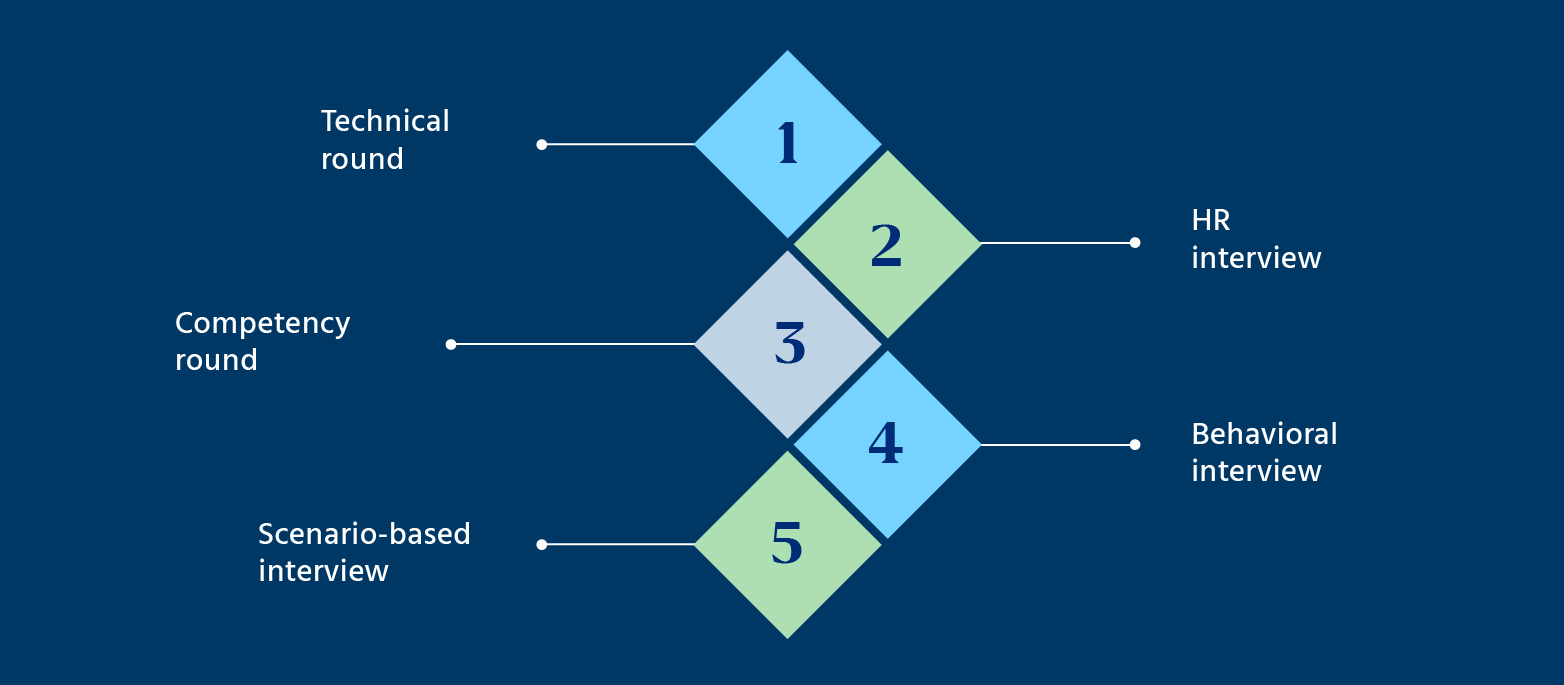Interview rounds differ from one organization to another. Different types of interviews are necessary based on the job role and its requirements. Therefore, strategic structuring of interviews is crucial to improve the hiring process and its efficiency.
Structured interview rounds are useful for assessing candidates based on their responses to specific questions. Semi-structured interviews allow recruiters to form their questions based on candidates’ previous responses. Semi-structured interviews are more commonly used to ensure interview efficiency and hiring success.
Modern workplaces also use unstructured interviews, allowing complete freedom for the interviewer to use planned and unplanned questions to assess a candidate’s capability. Interview rounds are usually determined based on the skillset required for the job.

1. Technical round:
Candidates’ technical skills are evaluated with structured interview questions. Usually, this is a pre-screening round for technical jobs.
2. HR interview:
HR professionals spend time with candidates to vet applicants and ask questions about their resumes. This step is used to shortlist candidates for the subsequent interview rounds.
3. Competency round:
Questions are planned to assess candidates’ job-specific skills. Such rounds are essential for junior-level candidates to ensure they possess the skills listed in the job requirement.
4. Behavioral interview:
Candidates are tested based on their personality and how they will respond to job situations. These questions help evaluate candidates’ future in the organization based on their past performance.
5. Scenario-based interview:
Candidates are given hypothetical situations and asked questions to evaluate their responses. It is suitable for experienced applicants, and their answers are used to assess cultural fitment.









 Behavioral Competencies
Behavioral Competencies Cognitive Competencies
Cognitive Competencies Coding Competencies
Coding Competencies Domain Competencies
Domain Competencies

































Would you like to comment?